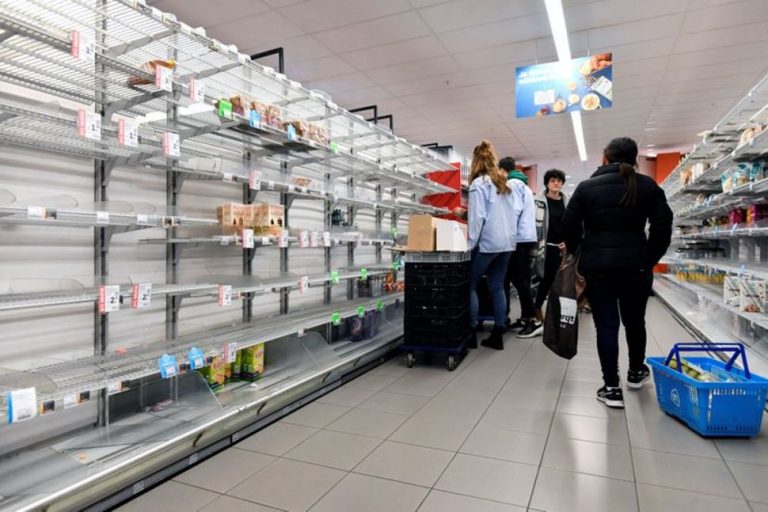
By Feenzu Sherpa
Artifical shortage of medicines and daily products are familiar problems for Nepalis while wrong informations and panic shopping taking place due to the outrage of recent pandemic COVID-19.
Doctors all over the world have urged to maintain personal hygiene to be safe from coronavirus outbreak but the lack of mask, sanitizers and even toiletries are leading to dispute and fight to get the remaining essential items on store.
A 39-year-old man has been charged for assault after a fight broke out in a supermarket in Sydney, Australia. Even though the local police said the fight was not related to coronavirus, the video clip of the event shows shoppers countinuing to stockpile items.
Taking advantage of fear from the growing pandemic, online scammers have exploited the coronavirus to scam more than $1 million from different hapless victims.
A man, on request to be anonymous, said he lost hundreds of thousands of dollars before law enforcement were able to stop skilled cyber criminals transferring away the cash in a series of rapid, multiple illegal transfers.
Interpol warned scammers are targeting people buying protective masks, hand sanitisers and medical items online, after shelves in bricks and mortar stores were stripped of products.
With surgical masks and other medical supplies in high demand yet difficult to find because of the COVID-19 pandemic, fake shops, websites, social media accounts and email addresses claiming to sell these items have sprung up online.
However, instead of receiving the promised masks and supplies, unsuspecting victims have seen their money disappear into the hands of criminals.
“Criminals are exploiting the fear and uncertainty created by COVID-19 to prey on innocent citizens who are only looking to protect their health and that of their loved ones,” Interpol Secretary General, Jürgen Stock said.
He warned anyone who was thinking of buying medical supplies online to carefully verify that the seller was a legitimate, reputable company.
The range of financial scams Interpol was investigating included telephone fraud, where the callers posed as doctors, and email phishing campaigns.
Emails claiming to be sent from national or global health authorities tried to trick victims into giving personal credentials or payment details, or to open an attachment loaded with dangerous malware.
To date, Interpol has assisted with more than 30 COVID-19 related fraud scam cases with links to Asia and Europe. Most of targeted victims have been located in Asia.





